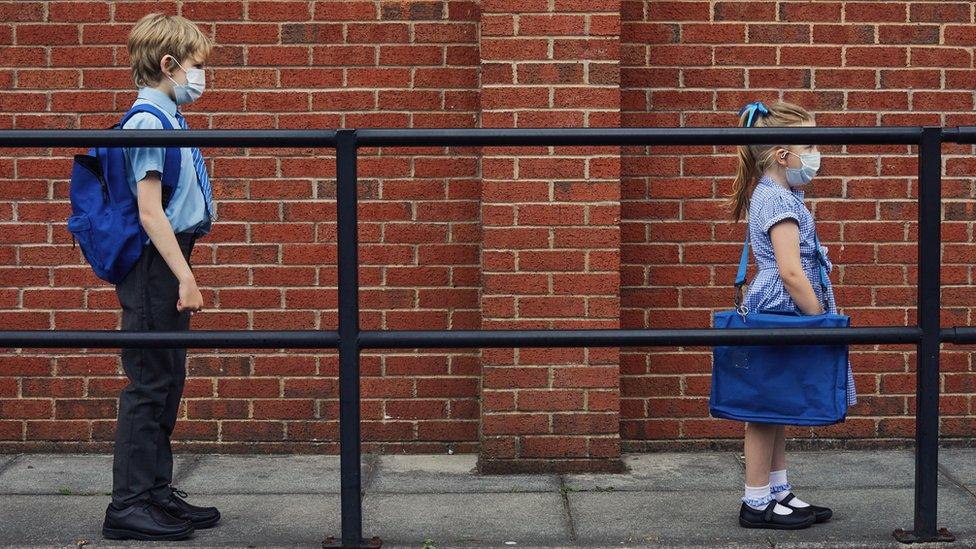School attendance: England Children's Commissioner sets out plan to get all pupils back in school
- Published
- comments
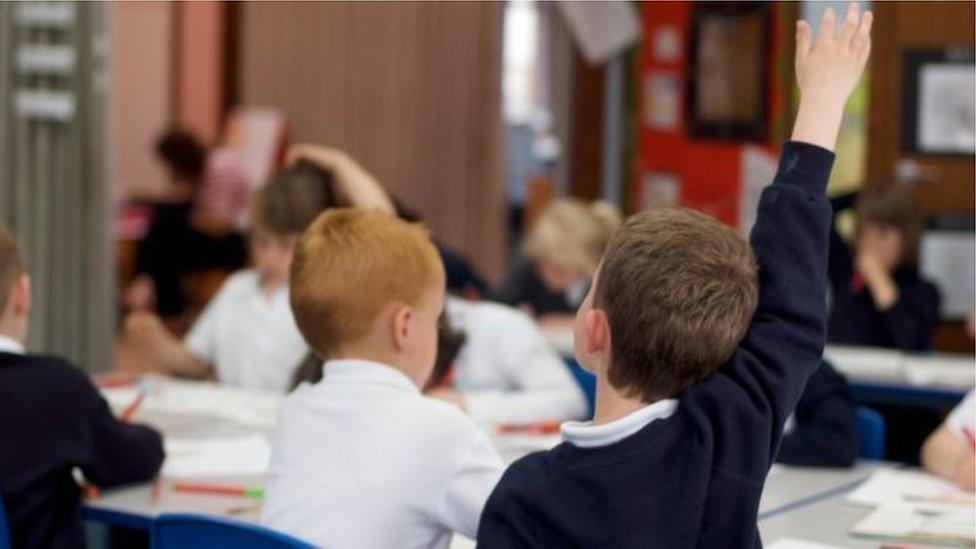
The Children's Commissioner for England has set out a plan she hopes will lead to 100% attendance on the first day of school next term.
Dame Rachel de Souza's announcement comes after a report in March showed that almost 1.8 million children in England missed at least 10% of school last year.
The report followed concerns that some pupils have never fully returned to lessons after lockdowns during the Covid pandemic.
Now, the Children's Commissioner has set out her plan to help get every child get back into the classroom, particularly those with Special Educational Needs or Disability (SEND).
"I believe being in school is not only the best place for children to thrive, be safe and happy and learn, but it's also overwhelmingly what children tell me they want for themselves," said Dame Rachel.
"And because we know that if a child misses the first day of term for whatever reason it is much harder to catch up and build good attendance, I want them in school for that first day back in September being welcomed, supported on the start of the best adventure of their lives."
Why are so many children and young people missing school?

In Autumn 2021, the number of children 'persistently absent' from school more than doubled compared to 2018/19, with almost 1 in 4 children persistently absent from school compared to around 1 in 9 in 2018/19.
The reasons why some pupils are not attending school are varied.
It's thought disruption and a loss of confidence in their school work and relationships with others during the pandemic is a likely factor.

Stephen Brierley said the pandemic had made things worse
Stephen Brierley, a headteacher in Liverpool, told the BBC in March 2022: "There are some that have got out of the habit of coming to school, and some have extra social needs so have found it difficult to make that leap to come back to school."
Some parents in the report said they felt they weren't listened to about the needs of their children, especially those with SEND.
What is the Children's Commissioner new plan?
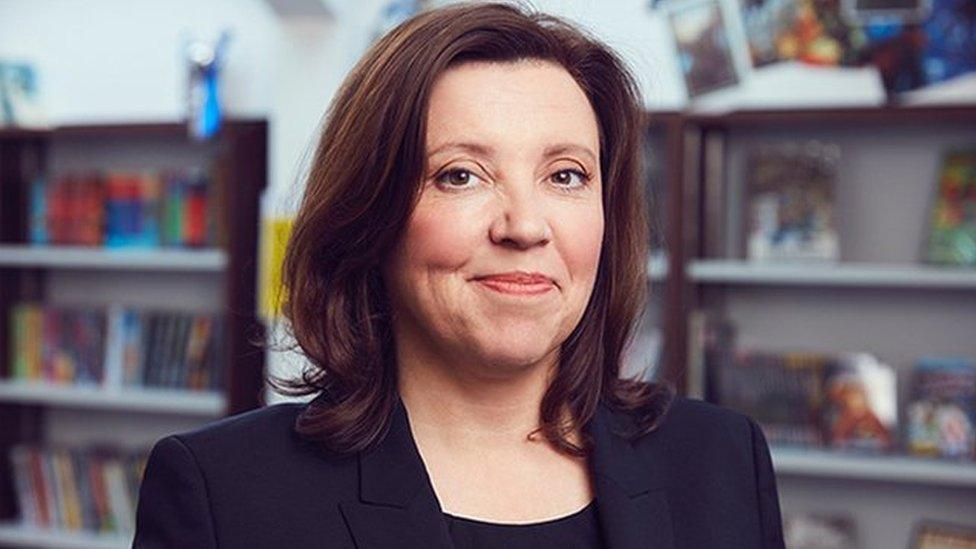
Dame Rachel de Souza took on the job of Children's Commissioner in March 2021
England's Children's Commissioner Dame Rachel de Souza looked at every council in the country to identify children missing from education.
She hoped to identify children most at risk, and the reasons why they miss school.
"My whole focus during this project has been to go out and find those who feel they can't be in school, to talk openly to them and understand why they feel like that and, of course, in order to get them the support they need to turn that situation around," said Dame Rachel.
"I want all children to be welcomed and supported, and feel really positive about being in the classroom, whoever they are, whatever their circumstances."
Ms de Souza said her number one goal is "that every child should be in school every day, supported and ready to learn. Every child has the right to a fantastic education."
The Children's Commissioner sees the new school year in September as a chance for a reset, and will be running a campaign over the summer to kick-start the new school year with full attendance:
"We know that if a child misses the first day of term for whatever reason it is much harder to catch up and build good attendance, I want them in school for that first day back in September being welcomed, supported on the start of the best adventure of their lives."
To help with this aim the Commissioner has announced a six point plan to improve school attendance from the start of the new school year.
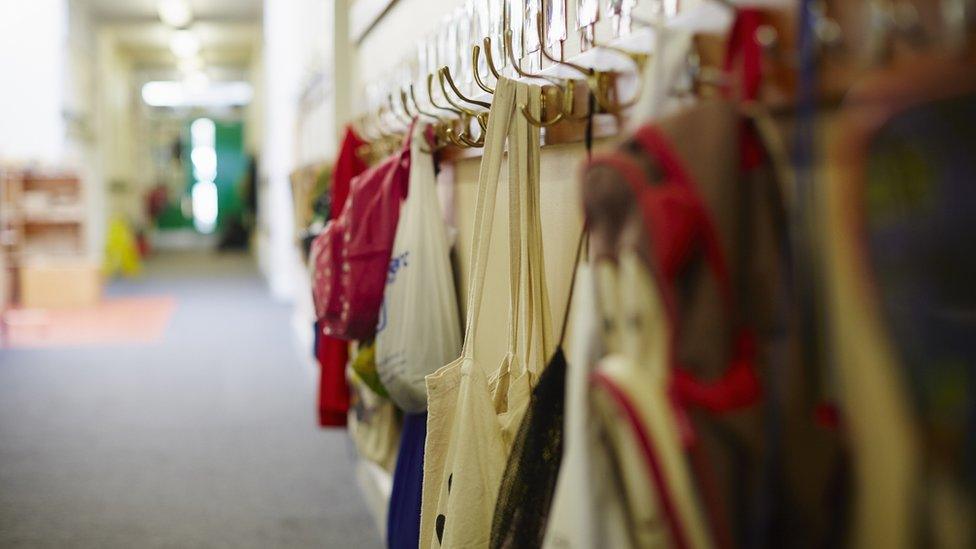
Some of the recommendations in Ms de Souza's plan include:
Every school in England has access to a mental health support team
Better support for young carers
Making sure if a pupil is excluded from school, their educational needs are fully assessed
The Commissioner has called for better use of data in tackling poor attendance. In response, the government has unveiled its first attendance live-tracker system, which they say will help improve attendance.
In the longer term she wants a more co-ordinated approach to making sure children don't fall through the many gaps between services, by making sure each child has one identifying number attached to them.
At the moment children in England have at least two numbers through the NHS and the national education data. The children's commissioner argues it could help ensure more joined up support for vulnerable groups such as young carers.
In response, the government said it was introducing a much more consistent approach to dealing with absences from schools across England, and that it had put £79m into speeding up the introduction of mental health support teams for schools.
1. Ask, listen, communicate: The decisions about children's education need to be made with children, their families, and other adults in their lives.
2. Meet children where they are: All children should receive support in school. Support for mental health, SEND, bullying or safeguarding issues, should all be given.
3. Exclusion should lead to intervention: Children should be in good quality education at all times and receive targeted support following exclusion or suspension.
4. Let children be children: No child should feel that they need to miss school to support their family.
5. Attendance is everyone's business: School leaders and Local Authorities should work together to ensure children are supported to be in school and to attend regularly.
6. No more 'known unknowns': Lack of information should never be a barrier to keeping children safe and ensuring they receive a high-quality education.
What about in other parts of the UK?

Scotland, Wales and Northern Ireland did not publish a similar report for the autumn term.
However, weekly stats released in Northern Ireland showed that more than one in 10 pupils there were not in school during the second week of the new term, Department of Education figures show.
The Department of Education said 88.9% of pupils were in school during the week from 6 September 2021 to 10 September 2021.
They suggest 3.1% of pupils - about 10,000 - were learning from home due to self-isolation or social distancing, but another 8% were marked absent by schools for reasons not due to self-isolation or social distancing.
The Welsh government said attendance had varied between 80-90 percent between 6 September 2021 and 7 January 2022, but advised against making comparisons between the other UK nations due to differences in data collection methods, presentation and definitions.
- Published10 January 2022
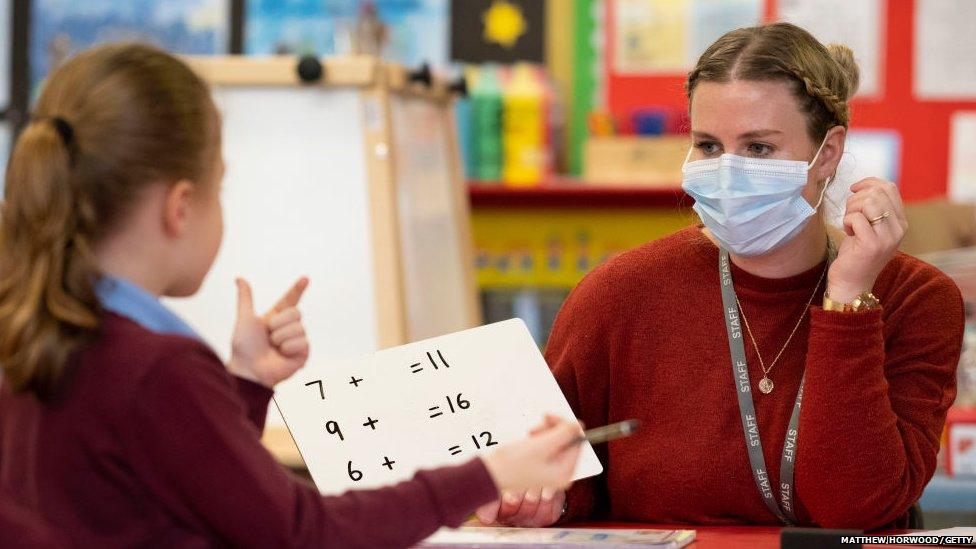
- Published16 September 2020
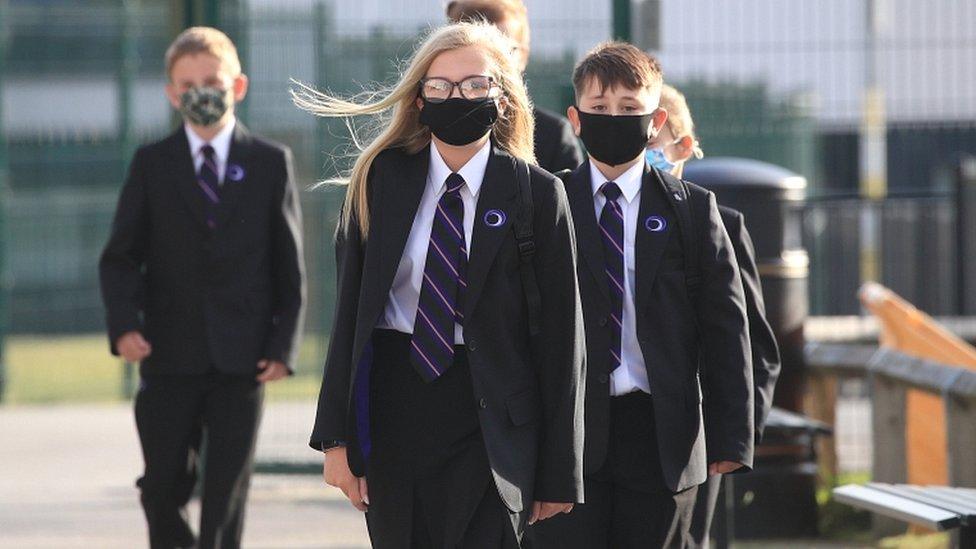
- Published23 August 2020
